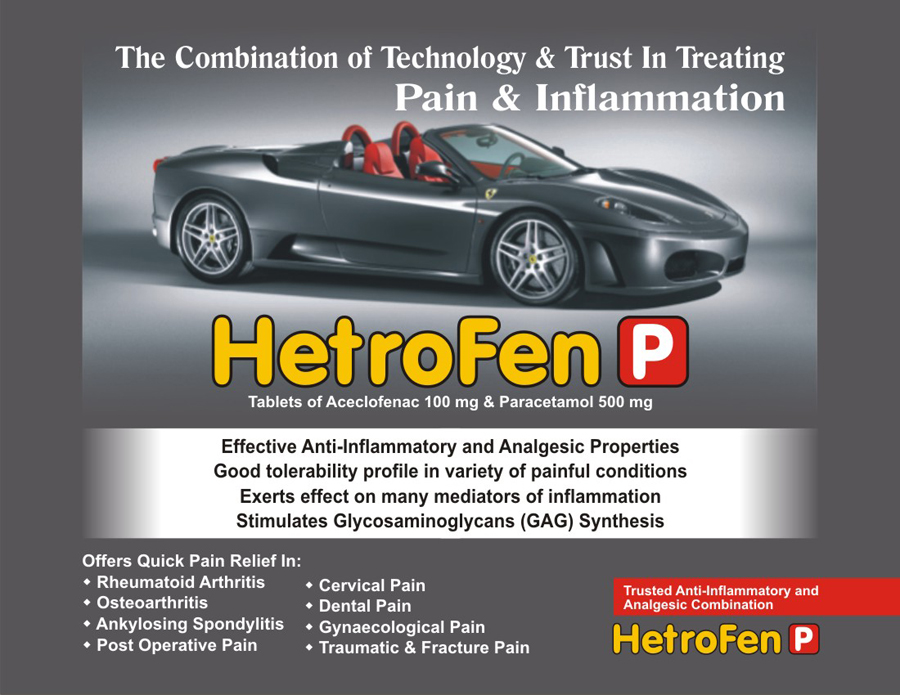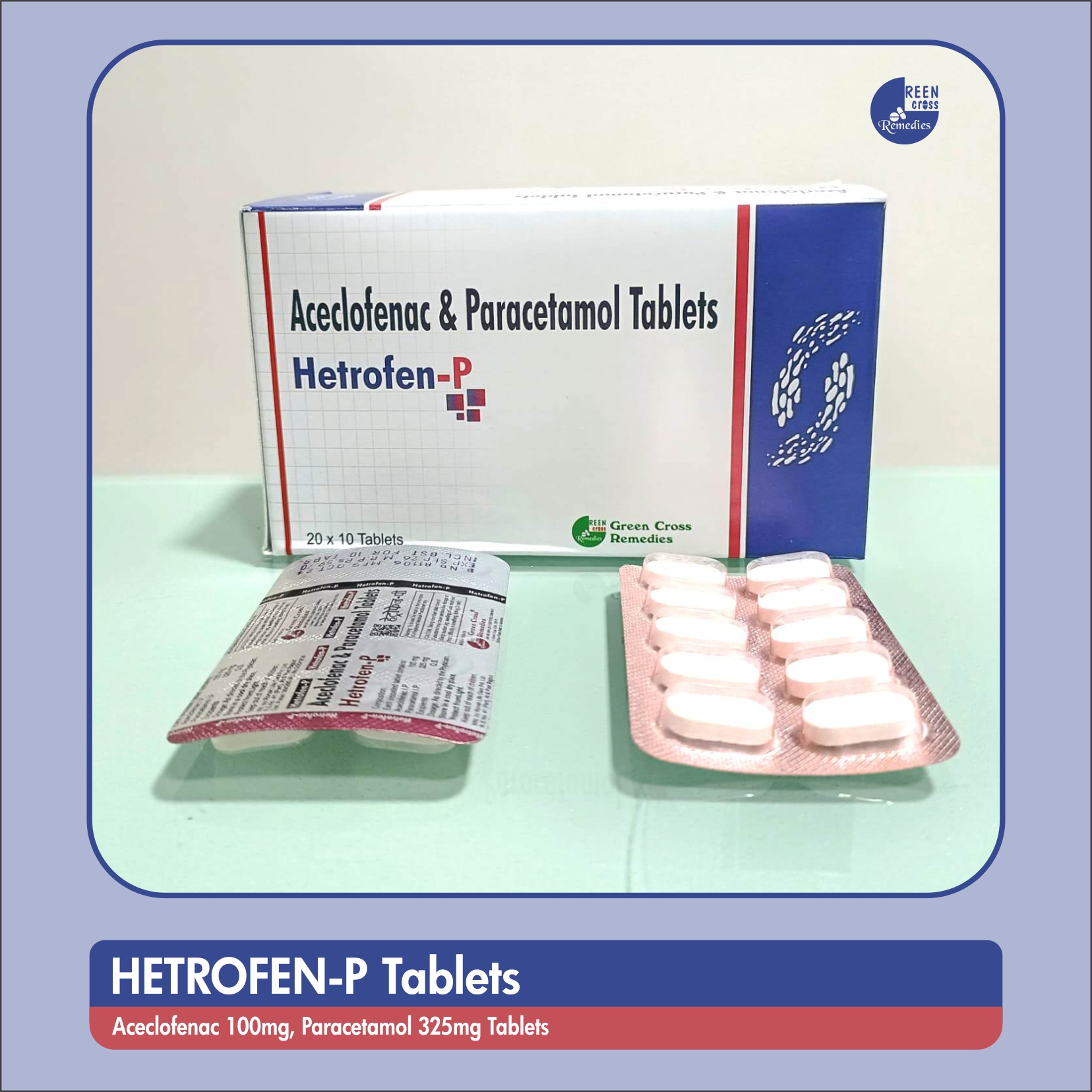HETROFEN P Tablet
Aceclofenac 100 mg, Paracetamol 325 mg Tablet Use, Indication, Side Effects, Dosage, Mechanism of Action, Price, Contra-Indications, Drug Interactions As Description|MRP: 59.70 (10 Tablet)
Inquiry Now
Aceclofenac 100 mg, Paracetamol 325 mg Tablet Use, Indication, Side Effects, Dosage, Mechanism of Action, Price, Contra-Indications, Drug Interactions...
HETROFEN P Tablet
Aceclofenac 100 Mg, Paracetamol 325 Mg Tablet
HETROFEN P Tablet contains a combination of Aceclofenac (100 mg) and Paracetamol (325 mg). This combination is typically used to manage pain and inflammation.
Use (Indication):
HETROFEN P Tablet is primarily indicated for:
-
Pain Relief: Used to relieve mild to moderate pain, such as headaches, toothaches, muscle pain, or post-surgical pain.
-
Anti-inflammatory Effects: It is used for conditions that involve inflammation, such as osteoarthritis, rheumatoid arthritis, and other inflammatory joint disorders.
-
Fever Reduction: Paracetamol (acetaminophen) helps reduce fever and can also be used in conditions where fever is present alongside pain.
Mechanism of Action:
-
Aceclofenac:
Aceclofenac is a non-steroidal anti-inflammatory drug (NSAID). It works by inhibiting cyclooxygenase (COX-1 and COX-2) enzymes, which are involved in the production of prostaglandins. Prostaglandins are chemicals in the body that promote inflammation, pain, and fever. By inhibiting these enzymes, Aceclofenac helps reduce inflammation and pain. -
Paracetamol (Acetaminophen):
Paracetamol works primarily in the central nervous system (CNS). It inhibits the enzyme COX in the brain (specifically COX-3), leading to pain relief and a reduction in fever. Unlike NSAIDs, Paracetamol does not have significant anti-inflammatory effects.
Dosage:
-
Adults:
The typical dose is 1 tablet twice a day. The exact dosage should be adjusted based on the specific condition and doctor's advice. -
Children:
Not typically recommended for children under 12 years unless directed by a doctor.
Side Effects:
Common side effects can include:
-
Gastrointestinal:
-
Nausea, vomiting, or abdominal discomfort
-
Risk of gastrointestinal bleeding or ulcers (especially with long-term use of Aceclofenac)
-
-
Liver and Renal Effects:
-
Elevated liver enzymes
-
Renal impairment or kidney-related issues (more common in long-term use or in patients with preexisting kidney conditions)
-
-
Allergic Reactions:
-
Rash, itching, swelling, or hives
-
In rare cases, severe allergic reactions (anaphylaxis) may occur.
-
-
Other:
-
Dizziness or headache
-
Sleep disturbances
-
Serious side effects (though rare) could include liver failure, gastrointestinal bleeding, and severe allergic reactions.
Contraindications:
HETROFEN P Tablet should not be used in the following cases:
-
Allergy to Aceclofenac, Paracetamol, or any NSAIDs (e.g., aspirin)
-
Active gastrointestinal bleeding or history of peptic ulcers
-
Severe liver or kidney impairment
-
Severe heart failure or other significant cardiovascular conditions
-
Pregnancy (especially in the third trimester) and breastfeeding, unless directed by a doctor
-
Asthma or rhinitis caused by NSAIDs
-
Blood disorders (e.g., thrombocytopenia, anemia)
Drug Interactions:
-
Aceclofenac:
-
Anticoagulants (e.g., warfarin): Increases the risk of bleeding.
-
Diuretics (e.g., furosemide): Can reduce the effectiveness of diuretics and may increase the risk of kidney problems.
-
Antihypertensives (e.g., ACE inhibitors): Can reduce the effectiveness of blood pressure medications.
-
Other NSAIDs: Using multiple NSAIDs together can increase the risk of gastrointestinal side effects or kidney problems.
-
-
Paracetamol:
-
Alcohol: Excessive alcohol consumption increases the risk of liver damage when taking paracetamol.
-
Anticoagulants: Long-term use of paracetamol may enhance the effects of anticoagulants like warfarin.
-
Other liver-metabolized drugs: Overuse of paracetamol with other liver-metabolized medications can increase the risk of liver toxicity.
-
For Use of Registered Medical Practitioner or A Hospital Only

